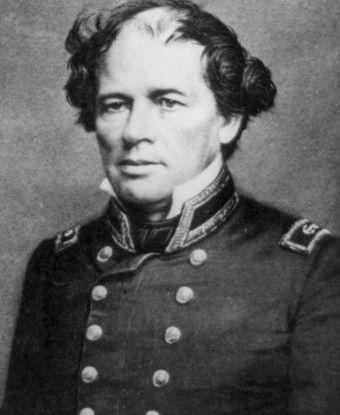Last updated: June 17, 2015
Person
Matthew Fontaine Maury

Library of Congress
From an early age, Matthew Fontaine Maury was fascinated by the sea and sea faring. When a leg injury left midshipman Maury unfit for duty aboard the U.S.S. Brandywine, he devoted himself full-time to the study of navigation, meteorology, the winds, and currents. This resulted in the publication of several well-received texts on meteorology and navigation, which in turn led to his appointment as U.S. Naval Superintendent of the Depot of Charts and Instruments in 1842.
While employed in this capacity, Maury published "The Physical Geography of the Sea," considered today the first modern textbook of oceanography. His system of recording oceanographic data was exceptional and was eventually adopted by seafaring nations the world over. In 1861 he resigned his commission in the U.S. Navy shortly after Virginia seceded and was appointed a commander in the Confederate navy.
He experimented with electric mines for a time, but in 1862 was sent to Europe to lobby foreign governments and procure vessels and supplies for the Confederate navy. After the war, he was briefly involved with the resettlement of Confederates in Mexico and the establishment of the Virginia Agricultural and Mechanical College in Blacksburg, Virginia (now Virginia Tech). In 1868, he accepted the position of Professor of Meteorology at the Virginia Military Institute in Lexington, Virginia where he died five years later.
